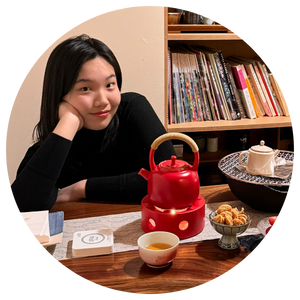

UBC Graduation
Tuum Est. It is yours.
UBC Psychology wishes all of our graduates a warm congratulations! We thank you for your dedication, hard work, and the remarkable contributions you have made throughout your academic journey with us. We are excited to see you walk across the stage at UBC’s fall 2024 graduation ceremony.
From aging healthier—to debunking myths about sex—to understanding how stress affects youth wellbeing—to studying the psychological consequences of poverty, these scholars offer fresh insights that impact society and beyond.
Meet our PhD and MA graduates and learn more about their research and academic experience.
PhD graduates
Dr. Mario Ferrari
Research Area: Clinical Psychology
PhD Dissertation: Identification and measurement of habit formation during slot machine gambling


Mario Ferrari
Citation: Dr. Ferrari studied how habits develop as people gamble on slot machines, which are a high-risk form of gambling. He developed a laboratory simulation to detect behavioural signs of slot machine habits, and he studied how gamblers interact with this game. His findings help us understand how gambling problems develop on modern gambling products.
Dr. Kyle Gooderham
Research Area: Cognitive Science
PhD Dissertation: Cognition in young adults: physical activity, diet, and sleep’s effects on subjective and metacognitive functioning


Kyle Gooderham
Citation: Dr. Gooderham examined whether physical activity, diet, and sleep habits were associated with intraindividual cognitive variability, subjective cognitive function, and metacognition. He found that young adults with healthier lifestyles report enhanced cognitive functioning, which may be leveraged to support cognitive functioning in this population.
Why did you choose to study at UBC Psychology?
UBC Psychology is a world class research department situated in the natural beauty of the Pacific Northwest. The opportunity to develop my research acumen under the tutelage of preeminent scholars in their respective research areas was too good to pass up. Furthermore, the Department, including staff and faculty, genuinely care about you as a person and your academic achievements.
What drove you to study your line of research?
We recognize that improving health is critical in all stages of life. However, young adults tend to sacrifice the lifestyle behaviours, including physical activity, diet, and sleep, that significantly contribute to psychological health and functioning in pursuit of other goals. Not only is foregoing healthy lifestyle behaviours impactful for health in later life, but it also affects cognitive functioning in the present. My research demonstrates that young adults who engage in healthful lifestyle behaviours experience improved cognitive function relative to their less health-minded peers.
Is there a single moment or highlight or person in your academic journey that stands out?
The first and last day. On the first day I met people who have become lifelong friends and colleagues. We have shared so many important moments and have become bonded by those experiences. On the last day I reflected on all that I had accomplished, with the support of my supervisor, friends, and family, as well as my transformation as an academic and human. It was a moment of awe and fulfillment.
What advice do you have for others considering graduate school?
Do not rush into graduate school and do not rush through graduate school. Make sure you are ready before you begin because, while it will be a lot of fun, there will be significant adversities that will challenge you in many ways. Once you begin graduate school, relish the challenges and prioritize your wellbeing because it is a long commitment and you deserve to enjoy the experience.
Dr. Sumeet Jaswal
Research Area: Cognitive Science
PhD Dissertation: Misokinesia : exploring sensitivity to others’ movements and its impact on attention and emotions


Sumeet Jaswal
Citation: Dr. Jaswal’s research explores misokinesia, the discomfort caused by others’ repetitive movements. Her findings reveal that misokinesia affects a significant portion of the general population, not just clinical cases. By shedding light on its social impact, her work paves the way for better understanding and support for those affected.
Why did you choose to study at UBC Psychology?
My supervisor, Todd Handy.
What drove you to study your line of research?
I experience misophonia, which is thought of as its auditory counterpart, so I was fascinated to realize that, until I started looking into this, misokinesia was absent from scientific research.
Is there a single moment or highlight or person in your academic journey that stands out?
My lab members, especially Kyle, who is walking the stage with me, provided laughter, camaraderie, and invaluable support throughout this journey, which made this dissertation possible.
What advice do you have for others considering graduate school?
Make friends because they will be your assets through the academic and personal adventures you will endure during grad school.
Dr. Ellen Jopling
Research area: Clinical Psychology
PhD Dissertation: Sociocontextual factors impacting the biological embedding of major transitions during adolescence


Ellen Jopling
Citation: Dr. Jopling examined the ways in which social and cognitive factors influence stress system biology in youth. Across three longitudinal studies, she connected cortisol dysregulation with inflammation among adolescents during the high school transition and the COVID-19 pandemic. Her work extends our current understanding of how stress influences wellbeing in youth by embedding biological development in the life course.
Dr. Kate Kysow
Research Area: Clinical Psychology
PhD Dissertation: Understanding hoarding clean-outs: a public scholar approach


Kate Kysow
Citation: Dr. Kysow conducted the first systematic research on hoarding clean-outs. She examined the factors precipitating clean-outs, the range of client-centered practices used, and the outcomes of these interventions. She followed a public scholarship approach which resulted in the formation of a best practice toolkit for dissemination among community providers.
Dr. May Luu
Research Area: Clinical Psychology
PhD Dissertation: Social values and social motivations as vulnerability factors for excessive acquisition


May Luu
Citation: Dr. Luu looked at social motivations for excessive acquisition. She found that people who acquire excessively are more materialistic and experience more severe depression than people who acquire in a healthy way, but these factors did not distinguish compulsive buying and hoarding symptoms. This work suggests new avenues for treating excessive acquisition.
Dr. Bradford H. Morrison
Research Area: Social Psychology
PhD Dissertation: The relationship between political leaders’ integrative complexity and the use of violence in international crises


Bradford H. Morrison
Citation: Dr. Morrison studied the relationship between how complexly a political leader thinks and their use of violence in international crises and confrontations. He found that lower complexity of thinking is associated with greater use of violence and with suffering a greater number of fatalities.
Dr. Arezoo Shahnaz
Research Area: Clinical Psychology
PhD Dissertation: Temporal associations between eating disorder behaviours and suicidal thoughts: an ecological momentary assessment study


Arezoo Shahnaz
Citation: Dr. Shahnaz examined the short-term temporal association between eating disorder behaviours and suicidal thoughts. She found that suicidal thoughts and eating disorder behaviours co-occur at a given time share and similar precipitating stressors and negative emotions.
Dr. Sophie Smit
Research Area: Clinical Psychology
PhD Dissertation: Parent engagement in parenting interventions for children with ADHD : the role of parent mental health


Sophie Smit
Citation: Dr. Smit’s work emphasized the importance of considering the mental health of parents in parenting interventions for children with ADHD. Findings suggested that parent mental health is associated with parenting behaviours. Her work further highlighted the importance of tailoring parenting interventions to enhance parent engagement.
Dr. Jessica Stewart
Research Area: Health Psychology
PhD Dissertation: The Construct Validity and Consequences of Likeability


Jessica Stewart
Citation: Dr. Stewart’s research found that being likeable during initial impressions is a stable trait that directly predicts educational attainment and social class, and indirectly predicts cardiometabolic risk. Her research increases our understanding of the importance of initial interactions during childhood.
Dr. Brandon Tomm
Research Area: Cognitive Science
PhD Dissertation: Psychological consequences of financial scarcity


Brandon Tomm
Citation: Dr. Tomm studied the psychological consequences of poverty. He found financial scarcity affects attention and impairs financial decision making. He also found that perceived scarcity, objective scarcity, and scarcity relative to others can affect numerical perception in different ways. His work marks a new awareness of the experience of poverty.
Dr. Jin Wen
Research Area: Health Area
PhD Dissertation: Reciprocal associations between nightly sleep and daily stress: individual differences and mechanisms


Jin Wen
Citation: Dr. Wen investigated how sleep affects stress from a day-to-day perspective and examines differences between people in this relationship and how nightly sleep connects with daily stress. This research helps explain pathways like morning stress expectations and bedtime emotions that link sleep to stress experiences.
Dr. Brittney Russell also received their PhD degree.
MA graduates


Zahra Abolghasem
Zahra Abolghasem
Research Area: Developmental Psychology
MA Thesis: Investigating top-down modulation of motion perception : replication of Xiao and Emberson


Hin Fu
Hin Fu
Research Area: Cognitive Science
MA Thesis: Concentrated behaviour in online gambling: an exploratory data analysis


Gabrielle Ibasco
Gabrielle Ibasco
Research Area: Social Personality
MA Thesis: The role of group-based moral pride in regulating guilt and shame for intergroup transgressions


Malina C. Lemmons
Malina C. Lemmons
Research Area: Quantitative Methods
MA Thesis:Understanding, evaluating, and justifying sample size: A systematic review and meta-meta-analysis


Carol Li
Sijia (Carol) Li
Research Area: Quantitative Methods
MA Thesis: Exploring the mathematical equations and empirical properties for maximal reliability and factor determinacy in bifactor models


Kiarah O’Kane
Kiarah O’Kane
Research Area: Clinical Psychology
MA Thesis: Demographic predictors of sexuality myth endorsement and social media knowledge translation for busting myths about sex
Why did you choose to study at UBC Psychology?
I chose to study at UBC Psychology for a few different reasons. The first was due to my research interests -- I found that my research interests fit into the intersection between the research interests of my co-supervisors, Dr. Samantha Dawson and Dr. Katrina Bouchard. I knew that their guidance would help me refine and further my program of research, and that they both were excited about the same kinds of research that I was! The second was a bit more personal! I did my undergraduate degree at UBC Psychology, and this department has always felt like home to me. I knew that graduate studies at UBC Psychology would provide me with the exact kind of training that I was looking for!
What drove you to study your line of research?
Despite being an important part of many people's lives, sexuality is a topic that most people receive very limited information about. Minoritized groups are even less likely to receive information about sex that is relevant to them. I wanted to understand whether some groups of people are more likely to hold inaccurate sexual beliefs, and whether holding these kinds of beliefs is associated with poorer sexual and relational outcomes. I was also interested in whether social media could be used as a tool to provide people with greater access to reliable information about sex, to fill some of the gaps in the accessibility of sexuality information! Overall, I hope that my research is a step towards ensuring more equitable access to sexual information, so that everybody gets access to important information about sex to help them thrive sexually!
Is there a single moment or highlight or person in your academic journey that stands out?
I would say a highlight of my academic journey was winning UBC's three minute thesis competition as a first year Master's student! It was amazing to be exposed to research being conducted across disciplines by other incredible grad students. I think winning this competition also empowered me to take risks and seek out opportunities throughout my graduate studies. I was also incredibly proud to represent my department on a university-wide level.
What advice do you have for others considering graduate school?
I would say to take your time figuring out what you are passionate about! I took two gap years prior to grad school and this was one of the best decisions I have made. It can be easy to feel pressured to get started quickly with grad school, but slowing down and honing in on what research really excites you is so important. It's also useful for getting a sense of what work-life balance looks like for you before starting an intensive graduate program!


Sakshi Sahakari
Sakshi Sahakari
Research Area: Social/Personality
MA Thesis: Tightness-looseness across India
Why did you choose to study at UBC Psychology?
I did my undergraduate degree here and was immediately taken with the social/personality classes I enrolled in. So I knew from earlier on I wanted to stay and learn further from some of the pioneers in this field! Beyond the opportunity to work with incredible academics, the highly collaborative nature of the community further incentivised me to choose to study at UBC Psychology.
What drove you to study your line of research?
Growing up in a diverse country such as India has always left me with questions about the range of human experiences and the role of geographical/cultural spaces in informing them. Being taught by some of the leading scholars in this field helped me find a way to probe at these questions, leading me to recognize that my research interests lie at the intersection of personality, culture, and geography.
Is there a single moment or highlight or person in your academic journey that stands out?
My last year during my undergraduate degree - it was a time of uncertainties and decisions about my future coupled with bouts of senioritis, but somehow it was simultaneously a fulfilling experience. Thanks to a few people who took a chance on me, namely my graduate mentors (Matt Billet & Julia Nakamura) and the faculty supervisors I worked with (Dr. Ara Norenzayan) or chose to work with me in the future (Dr. Friedrich Götz, my current supervisor!), I found myself more confident in my decision to pursue graduate school in Social/Personality psychology.
What advice do you have for others considering graduate school?
Take your time! I think there's been a long held intuition that we need to apply to graduate school right after undergrad. I know I did, but if I were to go back, I would probably take some time off to figure out what drew me to my field of interest. This is becoming more of a norm in academia, and rightfully so. In a world with so much stimulation, it's hard to figure out your research interests on during grad school and it's better to take your time to determine what you want to do before you embark on your grad school journey!
Simone Goldberg and Charlotte Stewardson also received their MA degrees.


